26 Mar2021
By AACTE
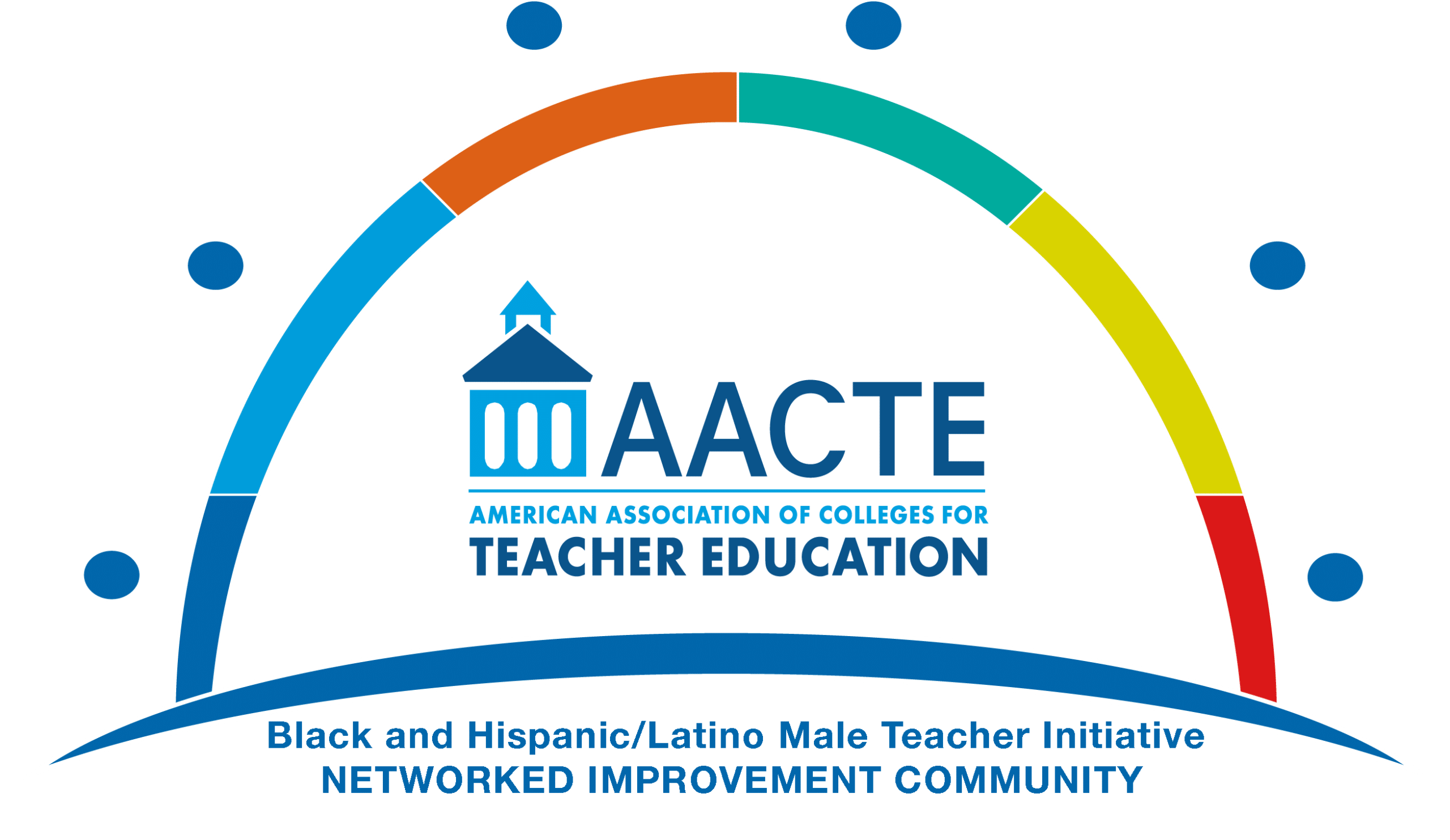
The American Association of Colleges for Teacher Education (AACTE) released today its new video series featuring promising practices for recruiting and retaining male teachers of color. AACTE created the Black and Hispanic/Latino Male Teacher Initiative Networked Improvement Community (NIC), which included a 5-year study by 10 AACTE member institutions that implemented improvement science to address the shortage crisis of Black and Hispanic/Latino profession-ready male teachers. Key findings from their research are featured in the video case studies, where the NIC participants present their experiences and lessons learned. NIC members describe effective ways for reducing barriers, developing partnerships, building recruitment pathways, providing mentorship, and offering faculty training to diversify the profession.
25 Mar2021
By Jennifer L Parks
This article originally appeared in the University of Hawai’i News and is reprinted with permission.
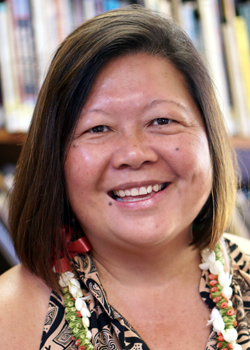 A University of Hawaiʻi at Mānoa College of Education professor is the recipient of the 2021 Southwest Conference on Language Teaching (SWCOLT) Excellence in Teaching Post-Secondary Award.
A University of Hawaiʻi at Mānoa College of Education professor is the recipient of the 2021 Southwest Conference on Language Teaching (SWCOLT) Excellence in Teaching Post-Secondary Award.
With more than 30 years of experience teaching Hawaiian language and developing programs in public and charter schools throughout the state of Hawaiʻi, Alohilani Okamura said she developed a deep respect for learning the language as a graduate student at UH Mānoa.
SWCOLT is a regional world language teachers’ organization in partnership with state teacher associations from Hawaiʻi, Arizona, California, Colorado, Nevada, New Mexico, Oklahoma, Texas and Utah. Okamura, who is in the Institute for Teacher Education (ITE) Secondary World Languages, was selected for her exceptional commitment to language education.
25 Mar2021
By Trey Vasquez and James Basham
 The Center of Innovation, Design, and Digital Learning (CIDDL) is requesting AACTE members’ participation in the strategic planning efforts by completing a needs assessment survey. All members are invited and encouraged to participate.
The Center of Innovation, Design, and Digital Learning (CIDDL) is requesting AACTE members’ participation in the strategic planning efforts by completing a needs assessment survey. All members are invited and encouraged to participate.
This data will inform CIDDL to better understand current technology use and practices of teacher education faculty in special education, early intervention/early childhood special education, and leadership preparation. The outcome report generated will provide valuable national insights and trends and an electronic version of. This report will be provided to all respondents in Summer 2021 at no cost.
25 Mar2021
By Dawn Williams
Howard University is pleased to announce its recent endorsement by the College Board to host an Advanced Placement Summer Institute in 2021. The Howard University School of Education is committed to increasing the diversity of AP educators and high school students enrolled in these courses. APSI@Howard will offer 2 cohorts for new and experienced AP teachers during the weeks of July 19-23, 2021 and July 26-30, 2021.
Our virtual AP Summer Institute will bring part of the Howard experience to AP teachers worldwide. Throughout the institute, educators will receive intensive training on the curriculum and teaching methods of AP courses while also being exposed to modules around implicit bias and anti-racist teaching and pedagogical approaches. Each workshop will include an experiential learning opportunity related to the field with the intent of modeling instruction. The workshops will allow teachers the opportunity to interact with colleagues and discuss concerns surrounding the AP courses they will teach. Please feel free to pass this information along to school and district leaders as well as high school teachers.
APSI @ Howard University is now accepting registrations.
July 19-23, 2021 Week 1 registration
July 26-30, 2021 Week 2 registration
Dawn Williams is the Dean of the Howard University School of Education.
25 Mar2021
By Temitope F. Adeoye
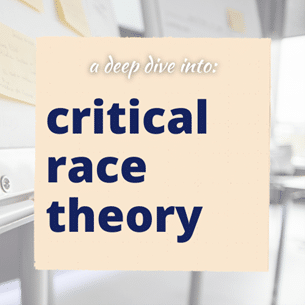 The AACTE 2021 Deeper Dive session “Critical Race Theory and Countering Political Culture” brought together experts in education, law, and history to discuss how taking a critical approach can help educators engage in courageous action. The panel included Khiara Bridges, professor of law at University of California Berkeley; Sonya Ramsey, associate professor of history at University of North Carolina Charlotte; and Alfredo Artiles, Lee L. Jacks Professor of Education at Stanford University.
The AACTE 2021 Deeper Dive session “Critical Race Theory and Countering Political Culture” brought together experts in education, law, and history to discuss how taking a critical approach can help educators engage in courageous action. The panel included Khiara Bridges, professor of law at University of California Berkeley; Sonya Ramsey, associate professor of history at University of North Carolina Charlotte; and Alfredo Artiles, Lee L. Jacks Professor of Education at Stanford University.
What is critical race theory?
Khiara Bridges began by acknowledging that although there is no single definition or enactment of critical race theory (CRT), CRT scholars all stand in opposition to oppression. Bridges defined CRT as an intellectual movement, a body of scholarship, and an analytical toolset for interrogating the relationship between inequality and education, law, history, health, or any other school of thought. She discussed four common tenants to CRT:
23 Mar2021
By Lynn M. Gangone
Happy spring! As PK-12 and higher education institutions proceed with reopening post-pandemic, AACTE continues its work to build education back better. We recently published new research on both AACTE’s vision to “revolutionize education for all learners” and promising solutions to recruiting and retaining male teachers of color. Please take a few minutes to
watch the video and learn more about these and other initiatives.
Stay connected with AACTE for the latest resources, tools, and information to address the issues facing our profession today. Visit
aacte.org to access these benefits and renew your AACTE membership by the extended deadline.
Cheers to doing what matters,
23 Mar2021
By Weade James
AACTE is pleased to welcome new Holmes Scholars from the University of Louisville and the University of North Florida. These institutions’ expansion of their Holmes Program signals their continued commitment to investing in initiatives that seek to advance equity in the education profession.
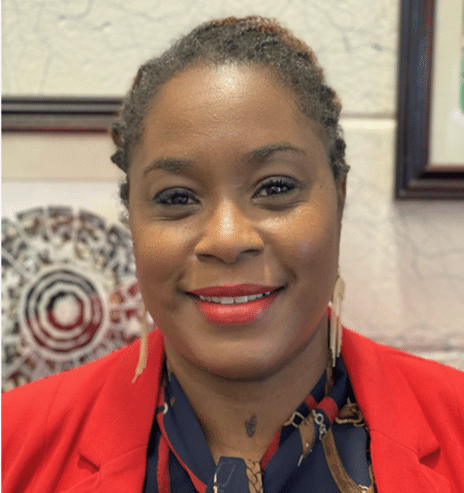 Easter Brown is in her second year in the pursuit of her Ed.D. Brown served as a classroom teacher for six years and three years as resident clinical faculty for a professional development school in partnership with the University of North Florida (UNF) before becoming an elementary school administrator. In continued efforts to bridge the gap between higher education and K-12 education, Brown serves as a member of the Business and Industry Leadership Team for Education and Human Services at Florida State College at Jacksonvilleand UNF’s Teaching, Learning, and Curriculum Advisory Board. Brown is passionate in culturally responsive pedagogy in elementary school curriculum and the leadership journeys of Black female educators in predominantly white institutions, specifically K-12 education.
Easter Brown is in her second year in the pursuit of her Ed.D. Brown served as a classroom teacher for six years and three years as resident clinical faculty for a professional development school in partnership with the University of North Florida (UNF) before becoming an elementary school administrator. In continued efforts to bridge the gap between higher education and K-12 education, Brown serves as a member of the Business and Industry Leadership Team for Education and Human Services at Florida State College at Jacksonvilleand UNF’s Teaching, Learning, and Curriculum Advisory Board. Brown is passionate in culturally responsive pedagogy in elementary school curriculum and the leadership journeys of Black female educators in predominantly white institutions, specifically K-12 education.
23 Mar2021
By Jennifer Manise

The Longview Foundation is seeking candidates for the GTE Fellows Program. The program is a year-long mentored virtual fellowship that focuses on integrating global learning outcomes into coursework for preservice educators.
Under the mentorship of experts in the field of global learning, each of the selected fellows will revise an undergraduate or graduate course that they teach in an initial teacher preparation program. The revised course will include global learning outcomes that will be enacted through engaging activities, resources and assessments aimed at promoting global learning. Fellows will then pilot and assess the revised course with a class of their own teacher candidates during the academic year. Applications are due April 7, 2021.
Apply now.
23 Mar2021
By Lynn Burdick
 There is no doubt the COVID-19 pandemic has caused unprecedented challenges in education. At the University of Illinois (U of I) in Urbana-Champaign, we are facing a lot of those challenges. However, I am trying to be the glass-half-full girl by saying there are a few things we have implemented in these past 12 months that I would like to see us put in place to stay.
There is no doubt the COVID-19 pandemic has caused unprecedented challenges in education. At the University of Illinois (U of I) in Urbana-Champaign, we are facing a lot of those challenges. However, I am trying to be the glass-half-full girl by saying there are a few things we have implemented in these past 12 months that I would like to see us put in place to stay.
When this pandemic is behind us, what best practices should we keep?
Technology for Collaboration, Engagement and Assessment
As we gradually move back into face-to-face classrooms, I know many teachers are ready to put the Chromebooks away! However, some teachers are continuing—and will continue—to apply the new technology skills and tools they discovered during online learning as they return to in-person teaching.
There are so many options for collaboration with creative uses of tools like Jamboard, Google Workspace, Padlet, and so many more. Technologies such as these have helped students who might not contribute when everyone is face-to-face actively participate in online activities. Quick online formative assessment tools have also made it easier for teachers to “take the temperature of the room” and make informed instructional decisions based on individual student learning.
23 Mar2021
By Anna Joseph, Ofelia Schepers and Kathryn Young
The widespread prevalence of trauma and subsequent impacts on student learning and behavior is well known and documented. PK-12 schools across the nation are integrating trauma-informed practices (TIP) to better respond to the needs of children who have experienced trauma. Furthermore, there are an increasing number of educator preparation programs that offer trauma training to their teacher candidates. This blog outlines one educator preparation program’s efforts to prepare its students in TIP.
The Metropolitan State University of Denver School of Education (SOE) in partnership with local non-profit Resilient Futures is integrating TIP into its entire curriculum. TIP is merged seamlessly with existing course learning objectives, ensuring that all students graduate competent to recognize and address the needs of children who have experienced trauma in their future classrooms and school settings. It is important for novice educators to have TIP integrated into their overall teacher preparation rather than required as an additional class or training to their already-crowded programs of study. With TIP integrated into course learning objectives, students understand how TIP is fundamental to all aspects of teaching and classes and not supplemental or add-on.
22 Mar2021
By Jane E. West
This blog post is written by AACTE consultant Jane West and is intended to provide updated information. The views expressed in this post do not necessarily reflect the views of AACTE.
The Biden Agenda Continues to Unfold
The Biden Administration is on the brink of distributing the nearly $122 billion in new COVID relief funding for the nation’s K-12 schools, which the Education Department said would be made available to states “this month.” Education Secretary Miguel Cardona notified state officials on Wednesday about the share of funding they would receive from the American Rescue Plan Act (ARPA) that President Biden signed last week. States and school districts “should plan to expend these funds to safely reopen schools as expeditiously as possible this spring, sustain their healthy operations, and address the significant academic, social, emotional, and mental health needs of their students,” Cardona wrote in the letter to state school chiefs.
Cardona joined White House Press Secretary Jen Psaki for her daily press briefing on Wednesday. During the Q&A with the press pool, Cardona touched on COVID-19 relief, school reopening, and standardized testing. The Secretary told reporters he didn’t plan to change the Education Department’s decision on standardized testing, which was announced in February before he was confirmed by the Senate. “The guidance that we provided at the agency last month is the guidance that we’re going with moving forward on assessments to see where students are after this pandemic,” Cardona said.
22 Mar2021
By Lynn M. Gangone and Daniel Domenech

Adobe Stock Photos
AACTE President and CEO Lynn M. Gangone and Daniel A. Domenech, executive director of AASA, The School Superintendents Association, authored this article that originally appeared in the District Administration and is reprinted with permission.
 Our nation’s education ecosystem is complex and multifaceted. When one component of the ecosystem is impacted, it creates a ripple effect that is felt throughout the entire system. The onset of the COVID-19 pandemic created a tidal wave of uncertainties, resulting in budget cuts, teacher shortages, and remote learning challenges.
Our nation’s education ecosystem is complex and multifaceted. When one component of the ecosystem is impacted, it creates a ripple effect that is felt throughout the entire system. The onset of the COVID-19 pandemic created a tidal wave of uncertainties, resulting in budget cuts, teacher shortages, and remote learning challenges.
An ongoing concern for school districts, teacher shortages have now become more severe. Teachers are leaving the profession at an accelerated rate, due primarily to health concerns and budget furloughs, and forcing superintendents to close schools not because of infection, but due to a lack of personnel to keep them open. The shortage also expands beyond teachers. It includes bus drivers, cafeteria workers, custodians, and essential support staff. Such reductions, caused by budget cuts resulting from the pandemic, are having a crippling effect upon school districts, and increased operational costs are eroding critical funds necessary to hire the staff desperately needed for in-school instruction.

19 Mar2021
By Meghan Grenda
 AACTE’s Member Spotlight features an individual from a member institution, highlighting how their work makes a difference in classrooms across the country. Nominate yourself or another member by providing a response to the following questions and sending to mgrenda@aacte.org.
AACTE’s Member Spotlight features an individual from a member institution, highlighting how their work makes a difference in classrooms across the country. Nominate yourself or another member by providing a response to the following questions and sending to mgrenda@aacte.org.
Get to know Tracie McLemore Salinas …
Position/Institution: Director, Mathematics and Science Education Center, Appalachian State University; Professor, Department of Mathematical Sciences
Number of years in your position: I am in my 17th year at Appalachian State as a faculty member and my first year as Director of the Mathematics and Science Education Center.
Alma Mater: B.S. William Carey University, Hattiesburg, MS; M.S. and Ph.D. University of Tennessee – Knoxville
19 Mar2021
By Meghan Grenda

AACTE understands that 2020 was a difficult year for higher education institutions and many are still facing operational challenges. As such, AACTE is extending the membership renewal deadline to May 31, 2021.
To renew your AACTE membership
- Submit Your Renewal via Credit Card: Visit your AACTE Profile to submit payment online.
- Submit Your Renewal via Check: Make payable to “AACTE” and mail to AACTE, PO Box 825490, Philadelphia, PA 19182-5490. Please note the AACTE mailing address has changed.
19 Mar2021
By Lynn M. Gangone
On behalf of the American Association of Colleges for Teacher Education (AACTE), President and CEO Lynn M. Gangone issued the following statement today responding to recent hate crimes toward the Asian-American and Pacific Islander (AAPI) community:
“AACTE believes that to educate is to enlighten. As such, our Association remains committed to educating all learners in PK-12 and higher education institutions to enlighten and empower the next generation of citizens. As an educational association of colleges and universities that values the diversity of students, their families, and educators, AACTE condemns the escalation of violence and harassment toward our AAPI colleagues, students, and friends.



 A University of Hawaiʻi at Mānoa College of Education professor is the recipient of the 2021
A University of Hawaiʻi at Mānoa College of Education professor is the recipient of the 2021  The Center of Innovation, Design, and Digital Learning (CIDDL) is requesting AACTE members’ participation in the strategic planning efforts by completing a needs assessment survey. All members are invited and encouraged to participate.
The Center of Innovation, Design, and Digital Learning (CIDDL) is requesting AACTE members’ participation in the strategic planning efforts by completing a needs assessment survey. All members are invited and encouraged to participate. The AACTE 2021 Deeper Dive session “Critical Race Theory and Countering Political Culture” brought together experts in education, law, and history to discuss how taking a critical approach can help educators engage in courageous action. The panel included Khiara Bridges, professor of law at University of California Berkeley; Sonya Ramsey, associate professor of history at University of North Carolina Charlotte; and Alfredo Artiles, Lee L. Jacks Professor of Education at Stanford University.
The AACTE 2021 Deeper Dive session “Critical Race Theory and Countering Political Culture” brought together experts in education, law, and history to discuss how taking a critical approach can help educators engage in courageous action. The panel included Khiara Bridges, professor of law at University of California Berkeley; Sonya Ramsey, associate professor of history at University of North Carolina Charlotte; and Alfredo Artiles, Lee L. Jacks Professor of Education at Stanford University.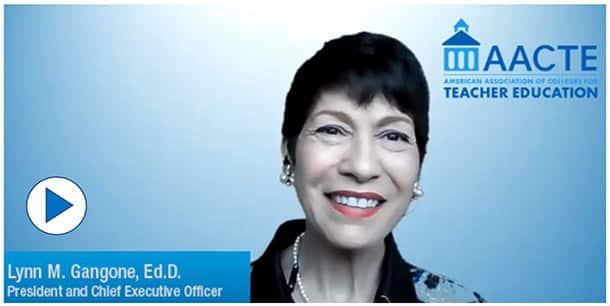
 Easter Brown is in her second year in the pursuit of her Ed.D. Brown served as a classroom teacher for six years and three years as resident clinical faculty for a professional development school in partnership with the University of North Florida (UNF) before becoming an elementary school administrator. In continued efforts to bridge the gap between higher education and K-12 education, Brown serves as a member of the Business and Industry Leadership Team for Education and Human Services at Florida State College at Jacksonvilleand UNF’s Teaching, Learning, and Curriculum Advisory Board. Brown is passionate in culturally responsive pedagogy in elementary school curriculum and the leadership journeys of Black female educators in predominantly white institutions, specifically K-12 education.
Easter Brown is in her second year in the pursuit of her Ed.D. Brown served as a classroom teacher for six years and three years as resident clinical faculty for a professional development school in partnership with the University of North Florida (UNF) before becoming an elementary school administrator. In continued efforts to bridge the gap between higher education and K-12 education, Brown serves as a member of the Business and Industry Leadership Team for Education and Human Services at Florida State College at Jacksonvilleand UNF’s Teaching, Learning, and Curriculum Advisory Board. Brown is passionate in culturally responsive pedagogy in elementary school curriculum and the leadership journeys of Black female educators in predominantly white institutions, specifically K-12 education.
 There is no doubt the COVID-19 pandemic has caused unprecedented challenges in education. At the
There is no doubt the COVID-19 pandemic has caused unprecedented challenges in education. At the 
 Our nation’s education ecosystem is complex and multifaceted. When one component of the ecosystem is impacted, it creates a ripple effect that is felt throughout the entire system. The onset of the COVID-19 pandemic created a tidal wave of uncertainties, resulting in budget cuts, teacher shortages, and remote learning challenges.
Our nation’s education ecosystem is complex and multifaceted. When one component of the ecosystem is impacted, it creates a ripple effect that is felt throughout the entire system. The onset of the COVID-19 pandemic created a tidal wave of uncertainties, resulting in budget cuts, teacher shortages, and remote learning challenges.
 AACTE’s Member Spotlight features an individual from a member institution, highlighting how their work makes a difference in classrooms across the country. Nominate yourself or another member by providing a response to the following questions and sending to
AACTE’s Member Spotlight features an individual from a member institution, highlighting how their work makes a difference in classrooms across the country. Nominate yourself or another member by providing a response to the following questions and sending to 